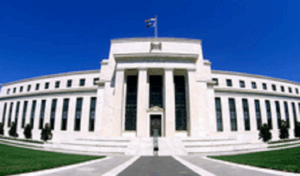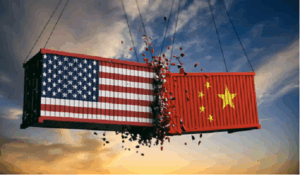Despite loomimg Trump tariffs Chinese economy grows 5.4% in Q1
The Chinese economy expanded by a better-than-expected 5.4 per cent in the first three months of this year, official statistics showed Wednesday, as exporters rushed to beat stringent new U.S. tariffs which came into force in early April.
U.S. President Donald Trump has imposed levies of up to 145 per cent on almost all Chinese goods, and Beijing has retaliated with 125 tariffs on U.S. imports, amid an escalating trade war between the world’s two largest economies.
That conflict is sure to bite in coming months, as Chinese exporters are forced to find alternative markets for the about US$440-billion in goods that would previously be sold on the U.S. market. Positive statistics in recent weeks, including a 4.5-per-cent increase in exports in March, were largely a result of companies on both sides of the dispute front-loading orders ahead of the expected tariffs.
Chinese officials have tried to play down the potential effect of the trade war, pointing out the U.S. accounts for only about 15 per cent of Chinese exports and emphasizing efforts underway to reform the country’s economy and boost domestic consumption. But growth remains highly dependent on exports, and most banks have drastically downgraded expectations for the Chinese economy this year.
Stock markets in China and Hong Kong fell Wednesday despite the positive GDP data, as Mr. Trump continued to threaten new tariffs and appeared to backtrack on carve-outs for high-end electronics.
The U.S. leader on Tuesday lashed out at Chinese President Xi Jinping, currently on a tour of Southeast Asia, accusing him of meeting with other countries “trying to figure out: ‘How do we screw the United States of America?’”
Mr. Trump has urged Beijing to come to the table for negotiations, but emphasized that Mr. Xi must take the first step, saying “the ball is in China’s court. China needs to make a deal with us. We don’t have to make a deal with them.”
So far, Mr. Xi has been unwilling to be the one to blink, and Beijing has matched the U.S. escalation for escalation, while attempting to portray itself globally as the more responsible partner, even as the White House has used a 90-day pause on Mr. Trump’s devastating “Liberation Day” tariffs to try to isolate China.
On Wednesday however, China unexpectedly replaced its top trade negotiator, promoting Li Chenggang, the country’s former envoy to the World Trade Organization, to the role. Beijing has repeatedly accused the U.S. of breaching WTO rules and called on the international community to shore up the global trade system.
A state media report on Mr. Li’s promotion described him as having “rich experience in handling international negotiations.”
Alfredo Montufar-Helu, a senior adviser on China at the global think tank the Conference Board, said Mr. Li’s replacement of veteran trade czar Wang Shouwen was “very abrupt and potentially disruptive.”
“This is certainly a change given how quickly trade tensions have escalated since Liberation Day, especially given Wang Shouwen’s experience in negotiating with the U.S. since the first Trump administration,” he added. “We can only speculate as to why this happened at this precise moment; but it might be that in the view of China’s top leadership, given how tensions have continued escalating, they need someone else to break the impasse in with both countries find themselves and finally start negotiating.”
Publicly, Beijing has shown no sign of easing its approach to the White House, with the state-run China Daily saying the U.S. “should stop whining about itself being a victim in global trade and put an end to its capricious and destructive behaviour.”
Earlier this week, China’s top official with responsibility for Hong Kong also hit out at Washington, calling Mr. Trump’s tariffs “extremely shameless.”
“The Chinese people do not cause trouble, nor are they afraid of trouble. Pressure, threats and blackmail are not the right way to deal with China,” Xia Baolong said in a televised speech. “Let those ‘peasants’ in the United States wail in front of the 5,000 years of Chinese civilization.”
The latter comment appeared to be a reference to an interview given by U.S. Vice-President J.D. Vance in which he claimed the U.S. borrowed “money from Chinese peasants to buy the things that Chinese peasants manufacture.”
Hong Kong on Wednesday stopped shipping parcels to the U.S. in response to what it said were “unreasonable and bullying acts.”
“Hongkong Post will definitely not collect any so-called tariffs on behalf of the U.S. and will suspend the acceptance of postal items containing goods destined to the U.S.,” the government said in a statement.
With files from Reuters














